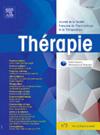Ethics and clinical research: How can the Ethics Committees (CPPs) and Committees for Research Ethics (CER) evolve?
IF 1.8
4区 医学
Q3 PHARMACOLOGY & PHARMACY
引用次数: 0
Abstract
In line with the spirit of the Giens workshops, this article reports on the recommended evolution of the Ethics Committees (CPPs) and the Committees for Research Ethics (CER) in France. These committees play a crucial role in the ethical evaluation of clinical research projects, a process that has become more complex, particularly in view of recent legislative, regulatory and methodological developments. This reflection highlights the current challenges faced by the CPPs, including the increasing workload, the complexity of the issues to be addressed and the need for better use of their resources. To address this, several recommendations are proposed. These include improving support to sponsors prior to submission, simplifying administrative tasks for CPP members and improving IT tools. The article also highlights the need for continuous evaluation of the activities of the CPPs to contribute to the quality and consistency of their opinions, as well as the importance of making this activity more attractive to qualified professionals, by offering them adequate compensation and professional recognition. For the benefit of all involved in health research, there is a strong desire to develop a single document management system accessible to all and inclusive of relevant information and document templates. Regarding the CERs, which currently operate without a legal framework, the proposition is that their development should take place under conditions of compliance with essential principles of collegiality, transparency and appropriate management of conflict of interest. Finally, it appeared necessary that the National Commission for Research Involving the Human Person (CNRIPH) be given adequate resources to carry out its tasks effectively, including the coordination of the CPPs and the development of appropriate training programs for their members. These recommendations aim to improve the operating conditions of the CPPs and CERs, ensuring the ethics of the research undertaken, as well as the quality of their results.
伦理与临床研究:伦理委员会(CPPs)和研究伦理委员会(CER)如何发展?
根据Giens研讨会的精神,本文报告了法国伦理委员会(CPPs)和研究伦理委员会(CER)的建议演变。这些委员会在临床研究项目的伦理评估中发挥关键作用,这一过程已变得更加复杂,特别是考虑到最近立法、监管和方法的发展。这一反思突出了方案协调会目前面临的挑战,包括工作量不断增加、待处理问题的复杂性以及需要更好地利用其资源。为了解决这个问题,提出了几项建议。这些措施包括改进提交前对赞助商的支持,简化CPP成员的管理任务以及改进IT工具。这篇文章还强调,需要持续评估cpp的活动,以促进其意见的质量和一致性,以及通过向合格的专业人员提供足够的报酬和专业认可,使这一活动对他们更具吸引力的重要性。为了所有参与卫生研究的人的利益,人们强烈希望开发一个所有人都可以使用的单一文件管理系统,并包括相关信息和文件模板。关于目前没有法律框架的核证审查制度,我们的主张是,它们的发展应在遵守合议、透明度和适当管理利益冲突等基本原则的条件下进行。最后,似乎有必要向涉及人的研究国家委员会(CNRIPH)提供足够的资源,以有效地执行其任务,包括协调cpp和为其成员制定适当的培训方案。这些建议旨在改善cpp和cer的操作条件,确保所进行研究的道德规范及其结果的质量。
本文章由计算机程序翻译,如有差异,请以英文原文为准。
求助全文
约1分钟内获得全文
求助全文
来源期刊

Therapie
医学-药学
CiteScore
3.50
自引率
7.70%
发文量
132
审稿时长
57 days
期刊介绍:
Thérapie is a peer-reviewed journal devoted to Clinical Pharmacology, Therapeutics, Pharmacokinetics, Pharmacovigilance, Addictovigilance, Social Pharmacology, Pharmacoepidemiology, Pharmacoeconomics and Evidence-Based-Medicine. Thérapie publishes in French or in English original articles, general reviews, letters to the editor reporting original findings, correspondence relating to articles or letters published in the Journal, short articles, editorials on up-to-date topics, Pharmacovigilance or Addictovigilance reports that follow the French "guidelines" concerning good practice in pharmacovigilance publications. The journal also publishes thematic issues on topical subject.
The journal is indexed in the main international data bases and notably in: Biosis Previews/Biological Abstracts, Embase/Excerpta Medica, Medline/Index Medicus, Science Citation Index.
 求助内容:
求助内容: 应助结果提醒方式:
应助结果提醒方式:


